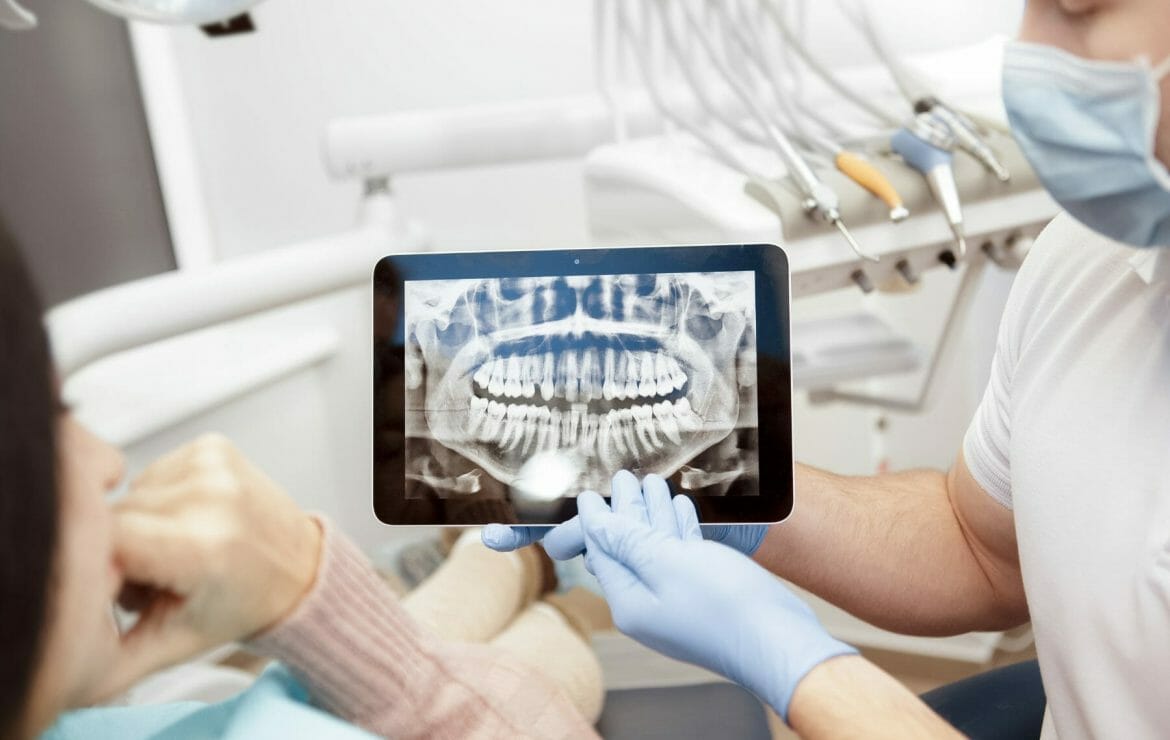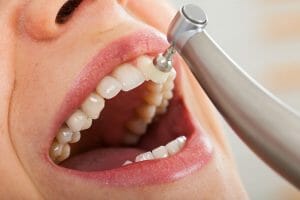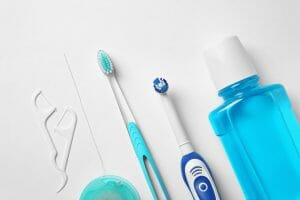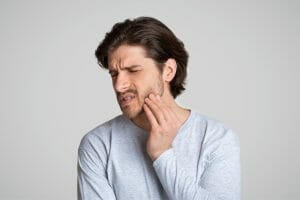Why Go to a Dentist for Sleep Apnea?

If you’ve been struggling to get a restful night’s sleep lately, there may be several potential culprits at play. Stress, a feeling of restlessness, and minor aches and pains can all cause you to lose much-needed Zzzzs.
But if you are continuously losing sleep and feeling its effects, there may be a major reason that Dr. Emily can help you address: sleep apnea.
You’ve probably heard of sleep apnea, but you may not know exactly what it is. And you may wonder why go to a dentist for sleep apnea. These are the topics we at O’Connor Dental Care will cover today.
What is sleep apnea?
Sleep apnea is a sleep-related breathing disorder that occurs when you cannot breathe fully while sleeping. But it’s not just an issue that affects your sleep; it can be severe enough to affect your day-to-day activities as well.
There are three main types of sleep apnea: obstructive, central, and complex (which is when you have both obstructive and central sleep apnea.)
According to the American Dental Association (ADA), obstructive sleep apnea “is characterized by recurrent narrowing or collapse of the upper airway during sleep, resulting in the partial or complete cessation of airflow despite continued respiratory effort.” Also known as OSA, it is the most common form of sleep apnea, causing about 80% of all known sleep apnea cases.
Central sleep apnea occurs when your brain fails to signal your breathing muscles, meaning you cannot breathe completely for short bursts of time. All forms of sleep apnea can be very dangerous if left untreated.
These are the common complications caused by sleep apnea:
- All-day drowsiness because of a lack of proper sleep
- Feeling moody and depressed
- Jaw and/or tooth pain
- Elevated risks for high blood pressure, heart attacks, and type 2 diabetes
- Metabolic syndrome and subsequent weight gain
- Liver damage
As you can see, you lose more than a good night’s rest when you have sleep apnea. It can open a gateway to several serious medical issues.
How do I know if I have sleep apnea?
Before a doctor diagnoses you as having sleep apnea, you may have a few telltale symptoms.
Most sleep apnea patients experience:
- Sleep deprivation
- Loud snoring
- Gasping for air when sleeping
- Insomnia
- Teeth grinding
- Awaking to dry mouth
- Awaking to headaches
- Feeling tired throughout the day
- Irritability
- Difficulty concentrating during the day
If you’re experiencing one or more of these symptoms, please be sure to speak to your doctor.
You may not be aware of some of these issues, as you are probably at least partially asleep when they occur. However, if you sleep with a partner, they may awaken in the middle of the night because of your snoring and gasping for breaths, and so can alert you to these disturbances.
What causes sleep apnea?
Sleep apnea has several known causes, depending on the type. OSA sufferers may be overweight, smoke and/or drink excessively, be older and a male, have sleep apnea in their family history, and a narrowed airway and/or thick neck circumference.
Central sleep apnea sufferers may be older and male, have a heart disorder, may have had a stroke, and use narcotic pain medications. Like with many health conditions, genetics, and personal habits are the largest contributors.
How do I get diagnosed with sleep apnea?
We cannot treat you for sleep apnea until you have a proper diagnosis, of course! The first step in detecting sleep apnea is to undergo a sleep study.
A sleep study, also known as a polysomnogram, occurs at a clinic or at home. Trained sleep technicians attach painless sensors to your body that will monitor and record your vital signs as you sleep. With these results, your doctor determines if you have sleep apnea, and which type. From there, your doctor determines a course of action to ease your symptoms.
So, why go to a dentist for sleep apnea?
If a doctor has diagnosed you as having obstructive sleep apnea following a sleep study, your dentist may work closely with your general practitioner to decide upon an effective course of treatment.
Your doctor may recommend you change your behaviors, such as cease smoking and drinking, lose weight, sleep in a better position, and exercise if these apply to you.
They may also recommend you wear a PAP device, which helps to open your airways to allow for uninterrupted breathing while you sleep.
Alternatively, or along with other types of treatment, you may wear a dental mouthguard, which is where we at O’Connor Dental Care come in. An oral appliance can set your jaw in the correct position, allowing air to flow better. It can also help prevent bruxism (the aforementioned teeth grinding.)
If you have sleep apnea, please request a consultation with Dr. Emily. Our team at O’Connor Dental Care can create a treatment plan with you and your primary care doctor, fit you for a dental appliance, monitor your progress, and get you back to experiencing restful and restorative sleep.











